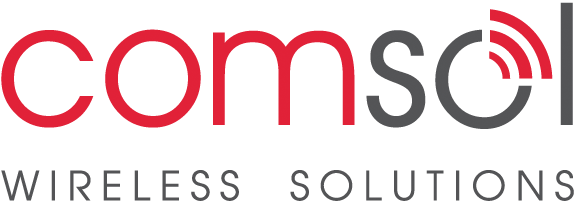How did this work?
Well, if Joe Soap wanted a telephone line, he would call the incumbent telephone company (in our case Telkom) and place an order for a service. Telkom would then run a copper wire from his house to their nearest exchange, sell him a telephone handset and " Presto!" the customer could make calls to his grandmother.
Now, in order for these calls to be possible, the exchange that Joe Soap was connected to had to be connected to the exchange that his grandmother was connected to. This interconnection of exchanges was accomplished through a vast network that was also sponsored by Tax payers as and when growth demanded.This system worked very well, except for one small problem: Private enterprise could never ever compete fairly with these huge monopolies, resulting in an environment where consumers had no freedom of choice.
What exasperated this problem even more in most countries, was the fact that these monopolies had protection under law from any competition. They were the only people allowed to lay copper and fibre, build wireless networks and provide circuits between exchanges.
This protection was largely diminished in South Africa when the local regulatory environment was relaxed under the new ECA (Electronic Communications Act), but public sector companies are still decades behind in building infrastructure that equals the scale of the previous state-owned Telkom.
Building the core of a network; that part where the switching and routing of calls and data happens; is faster to do than getting wires to Joe Soap and his grandmother's homes, for the obvious reasons of sheer numbers of subscribers and vast distances required to be covered.
These wires between the exchanges and the end-users' homes, are what is known as the local loop.
There are two distinguishable parts to the local loop:
- The actual pairs of copper cable.
- The voice and data that is carried across these wires.
This process of giving access to the wires in the ground to private companies, is what is known as unbundling of the local loop.
There are, however, disparaging views on unbundling.
On the one hand, people argue that by unbundling the local loop, governments would be discouraging investment in newer technologies and advanced infrastructure by the new kids on the block. Why would “123-We-Connect-U” spend money on better infrastructure, if it could use the existing infrastructure at a fraction of the current costs?
Surely these companies would much rather spend this money on advertising and building superior core networks that would place Telkom at a disadvantage.
How would the maintenance of these local loops be handled?
Who would carry the costs?
And to what extent should new companies be allowed access to the local loop?
Should they get access to the services on top of the cable, or even to the cable itself?
On the flip side of the coin is the argument for unbundling, which says we, the consumers, paid for these networks and then government just gave it away when it was privatised. That’s not fair is it?
This process in South Africa dates back to as far as 2006, when the then minister of communications announced the appointment of the Local Loop Unbundling Committee.
On 22 June of this year ICASA published their view in light of the ministerial instructions, in a Discussion Paper for comment on this matter by stakeholders. (Gov. Gazette # 34382 / Notice 409 of 2011) If this matter is of interest to you I recommend that you read this paper in detail.
In a nutshell, ICASA holds the view that the local loop has, in fact, already been unbundled.
Really?
Their view is as follows:
Section 43 of the ECA already compels license holders to lease facilities to other licensees.
Facilities that have to be leased include, but are not limited to:
• Wire
• Cable
• Mast
• Radio apparatus
• Space on and in poles, ducts, cable trays etc.
On May 31 2010, the Electronic Facilities Leasing Regulations were published, regulating these leasing conditions and obligations. The regulator thus believes that all that is left to conclude is a standard that needs to be adhered to when requesting access.
The June 22 Discussion Paper asked the relevant stakeholders for their input. This input had to be submitted by 26 August. In other words, like so many things in this beautiful country of ours, the legislative framework exists for ECS and ECNS license holders to get whole-sale and non-discriminatory access to the local loop, as well as other facilities, (like masts, poles and radio apparatus) yet I feel that it will take a court action like the Altech vs The Minister of Communications case, before we will see broad applicaton of this process.
Let's see what the stake-holders present and what action follows from this latest attempt to get cheaper communications to all South Africans.
Are they all afraid that they might end up giving more than what they can take?
Will ISPA take a lead in fighting the consumer’s right to cheaper calls and data?
I for one will be watching with bated breath.
Rico du Plessis
Chief Operations Officer
